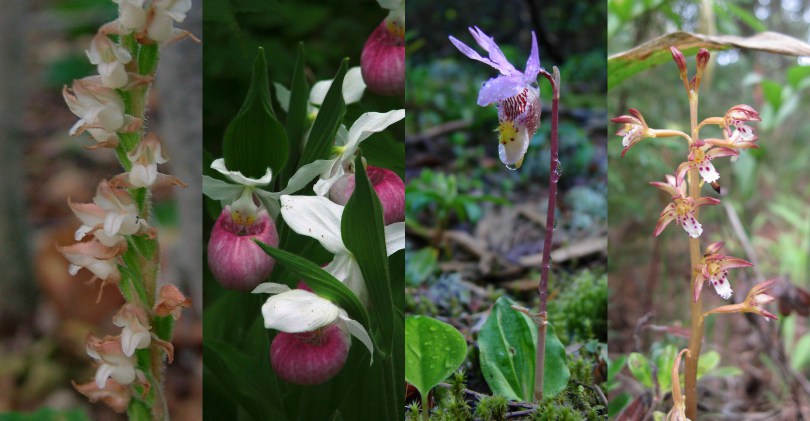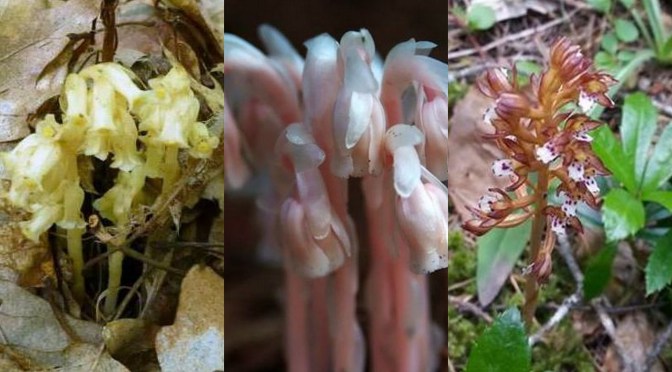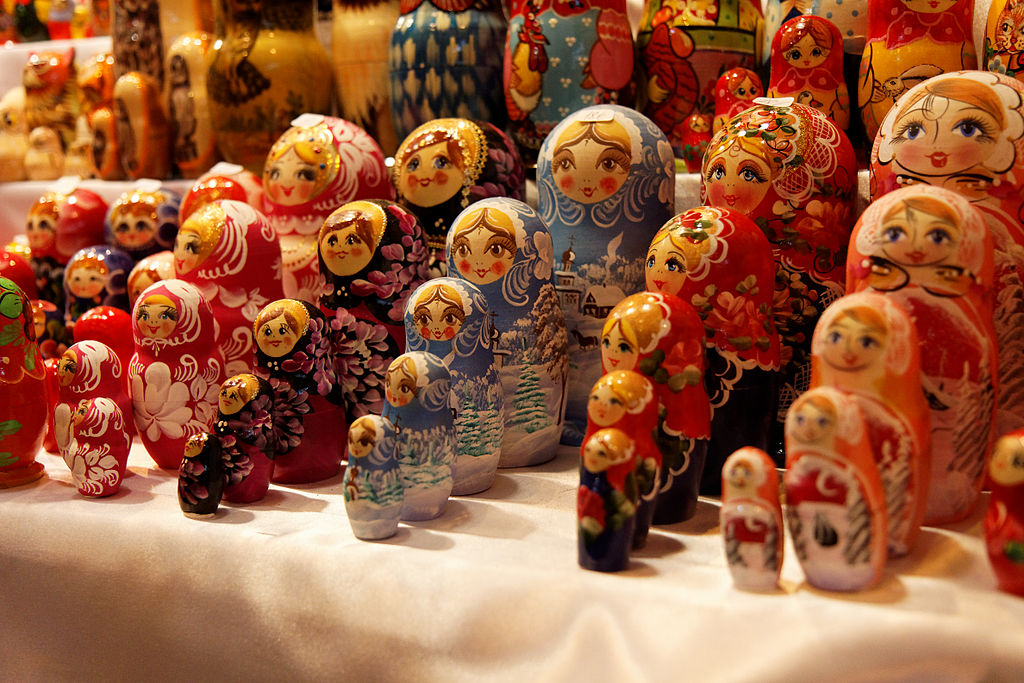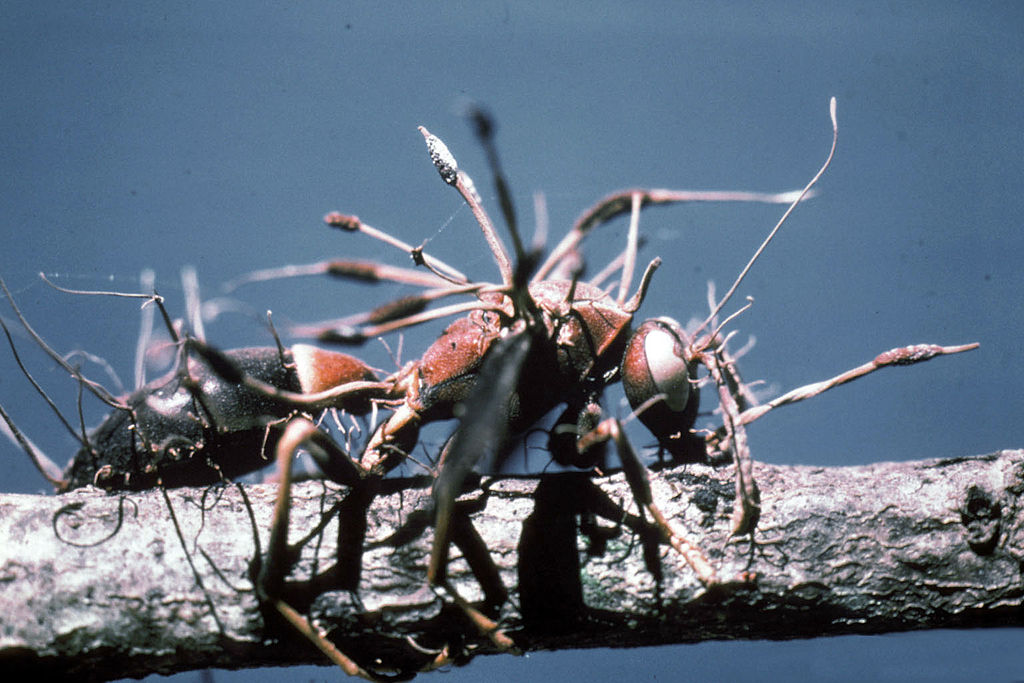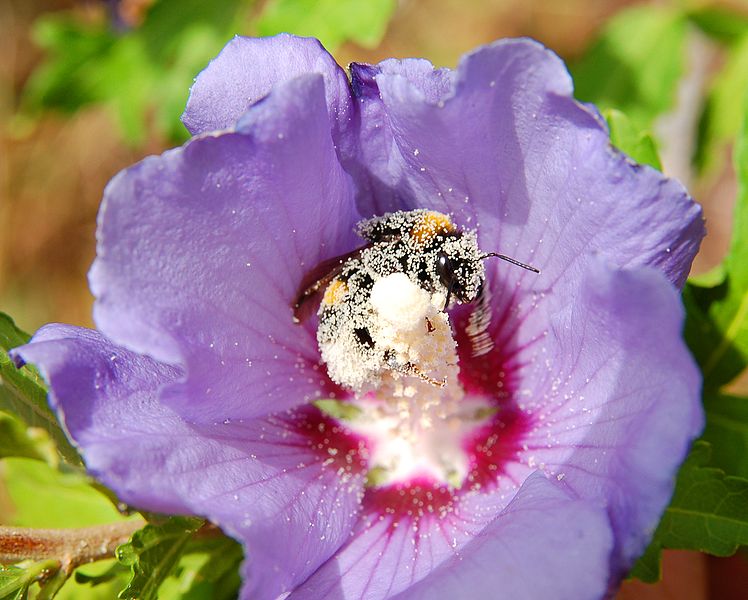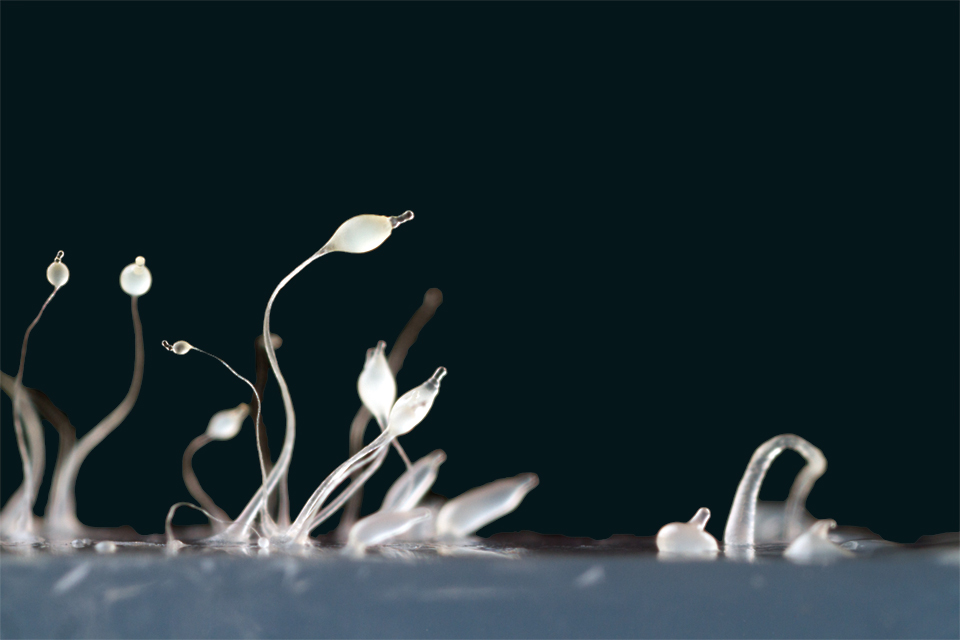Featured image: Michigan Orchids. Photos: Katie Grzesiak I really just want to talk about plants all the time; apparently having a job where I talk about plants all the time isn’t enough for me. And since you’re not the boss of me, this time I want to talk about orchids. To make a long story short, orchids (plants in the …
Plants Without Chlorophyll: It’s Easy Being Green, But Stealing is Even Easier
Featured images, left to right: pinesap, ghost plant, spotted coralroot orchid. Photos: Katie Grzesiak Plants are Plants Plants make their food with energy from the sun; that’s what is often used to define them as plants. If I want to throw my degrees around, I call them “photoautotrophs,” from the Greek for “light,” “self,” and “feed.” Photosynthesis! It’s super neat, …
Our Nested Origins
Cover photo: Wikimedia User Thesupermat The scientific method is a powerful tool for exploring the physical realities underpinning our existence. But there’s no guarantee that we’ll like what we find once we start the exploration. The physical relationships uncovered by scientific inquiry can be joyful or disturbing, useful or esoteric, controversial or deeply satisfying. Occasionally, science can reveal truths that are just, well, a bit trippy. Endosymbioses are long …
Parasites of the Mind
Cover photo by Erich G. Vallery, USDA Forest Service – SRS-4552, Bugwood.org Parasites are a beautiful nightmare. The many lineages of parasites have evolved all sorts of twisted, macabre ways of making a living off their host. Some are content to live on our skin and feed off sweat and dead skin, while others must burrow deep inside to get their …
Symbiosis: What’s in a Name?
In the natural world, no species is an island. Every living thing is enmeshed in a web of interdependency with other species. In the broadest sense, all living things depend on the metabolism of other species to deliver the nutrients they need in a form they can use. Without the photosynthesis of the world’s great forests, coral reefs and algae beds, there would …
Evolutionary Insights into Language and Culture
The verb “to spit” may be one of precious few words preserved from the common ancestor of all Eurasian languages, retaining largely the same sound and meaning for thousands of years. The word “huh,” as in “what did you just say,” has arisen in many languages around the world. These findings come from two of several recent studies that use methods developed in evolutionary biology to discuss the …
Altruism and Cancer from a Slime Mold’s Perspective
Main photo: Alex Wild Multicellularity is an astonishing feat of communal sacrifice. With the exception of sperm and egg (the “germ line” cells), the 40 trillion cells currently in your body will dutifully perform their particular charge to maintain the whole, intricately arranging themselves to form your arteries, lungs, liver and brain, without ever having a chance to meaningfully reproduce. Many will die …

